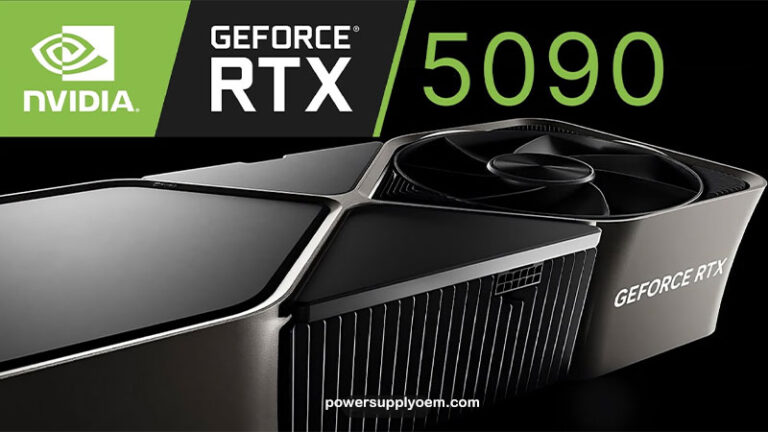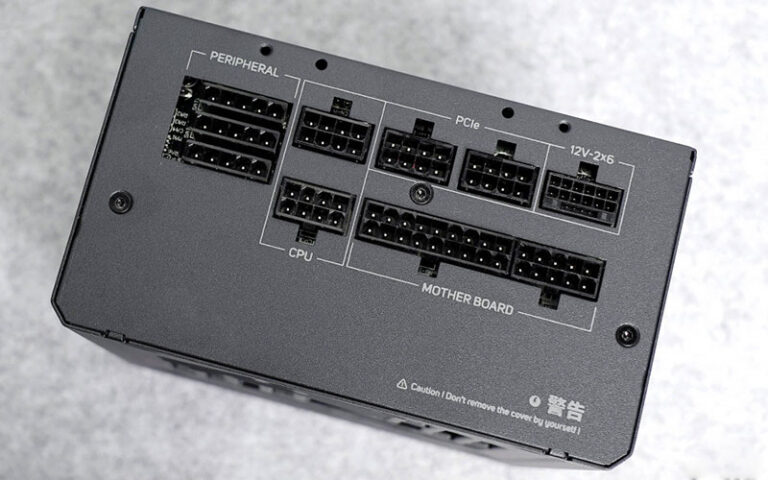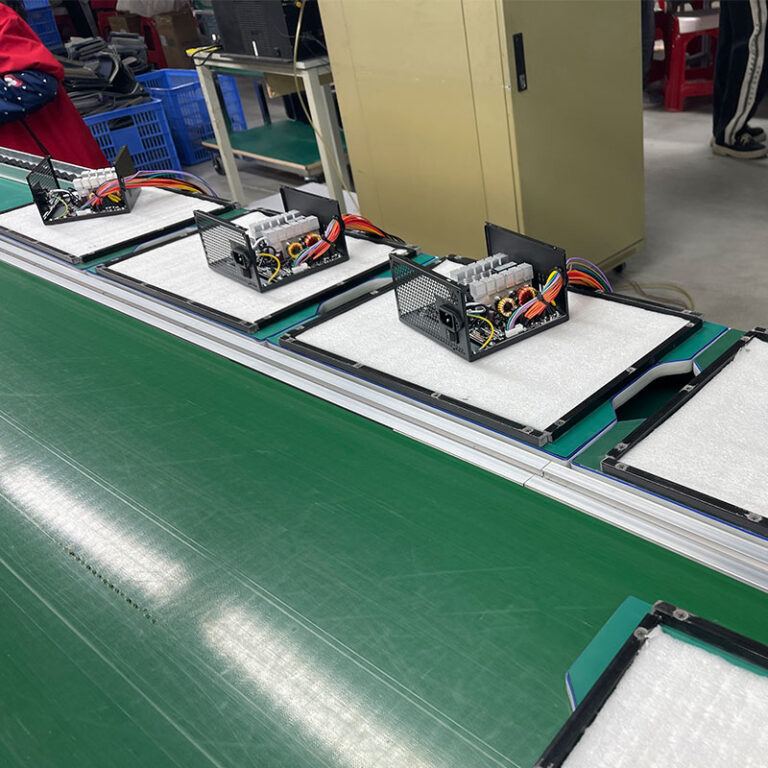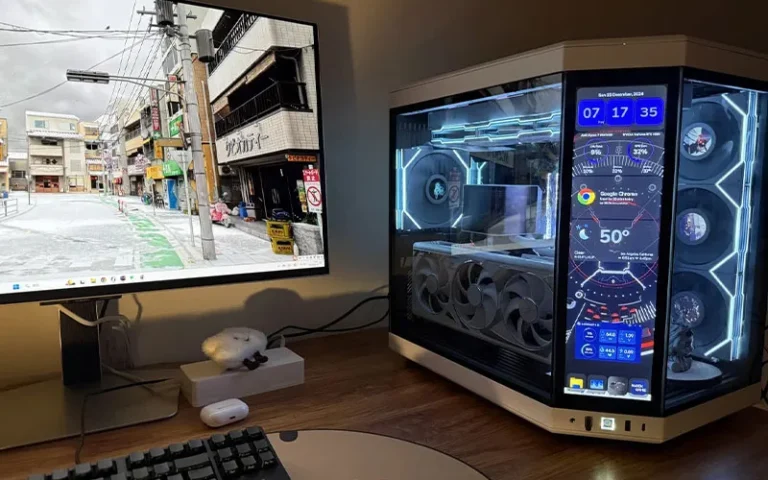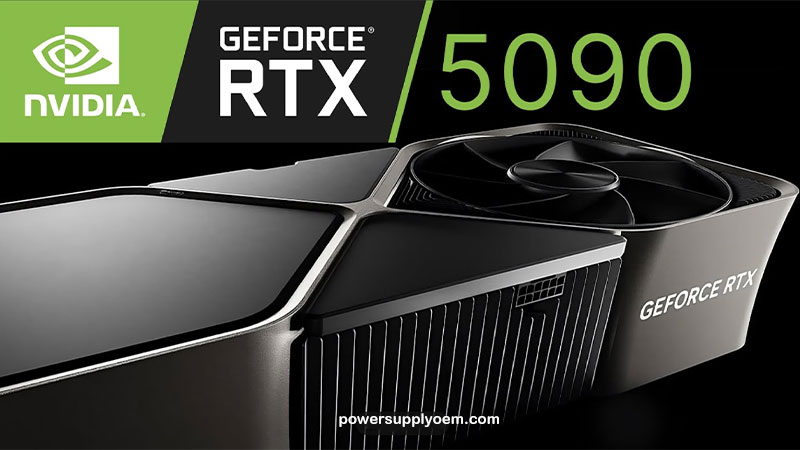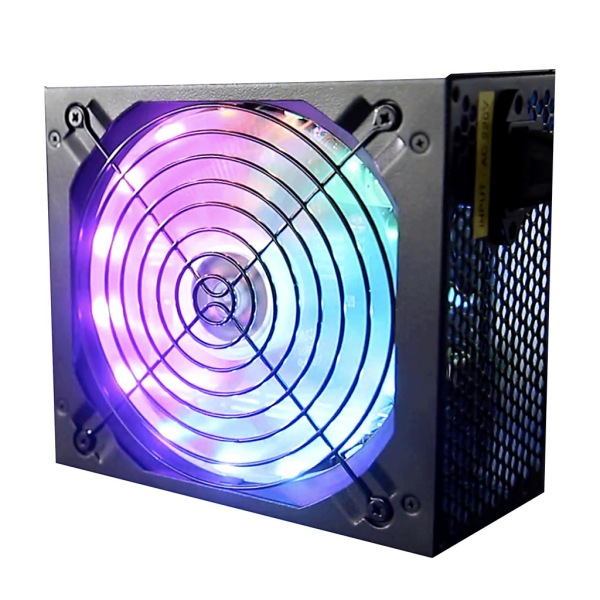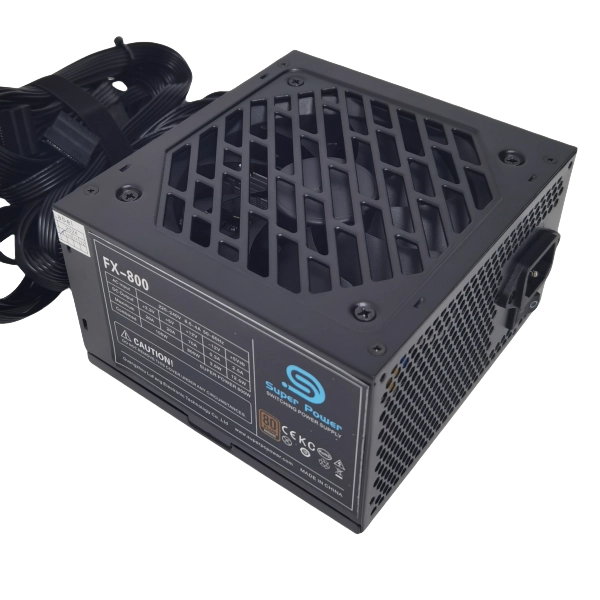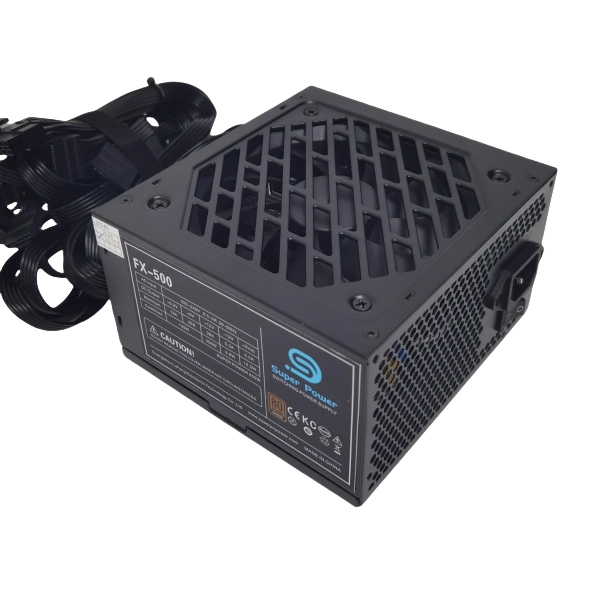-
Building E, No. 65 Xingshan North Road, Liangtian, Baisha Industrial Park, Baiyun District, Guangzhou
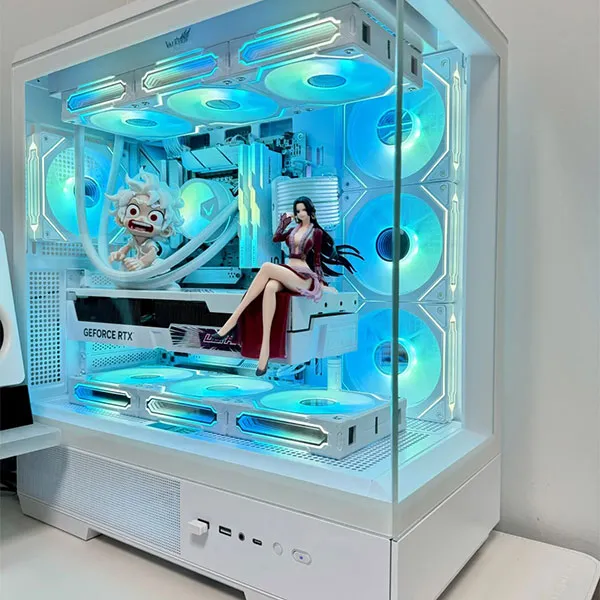
What Is Good Power Supply For Gaming PC
How to Choose the Best Power Supply for Your Gaming PC: Is Your PSU Enough?
Choosing the best power supply (PSU) for your gaming PC is a critical decision that directly impacts your system’s stability, performance, and longevity. This guide will help you determine if your PSU is enough for your current or future gaming rig, covering everything from calculating wattage needs to understanding efficiency ratings and choosing between different types of power supplies. Whether you are building a new system, or checking the power supply for PC you have, this will help. We’ll walk you through selecting the right one for your needs, ensuring your PC power supply provides clean, reliable power for years of uninterrupted gaming.
Table of Contents
1. Why is the PSU Crucial for a Gaming PC?
The PSU, or power supply unit, is often underestimated, but it’s one of the most important components in a gaming PC. It’s responsible for converting the alternating current (AC) power from your wall outlet into the direct current (DC) power that your computer’s internal components use. The PSU is essential.
For gaming PCs, the PSU is even more critical because:
- High Power Demands: Gaming components, especially high-end graphics cards (GPUs) and processors (CPUs), have significant power requirements. A PSU needs to be able to provide enough power to handle these demands, even during intense gaming sessions.
- System Stability: A reliable PSU ensures stable power delivery, preventing system crashes, freezes, or unexpected shutdowns that can ruin your gaming experience.
- Component Protection: A good PSU includes protection features that safeguard your valuable gaming hardware from damage due to power surges, fluctuations, or failures.
- Overclocking: If you plan to overclock your CPU or GPU, you’ll need a PSU that can handle the increased power draw.
In essence, the PSU is the foundation of your gaming PC’s power system, and choosing the right one is essential for a smooth and reliable gaming experience.

2. Calculating Your Power Needs: How Many Watts Do You Need?
Determining your gaming PC’s power requirements is the first step in selecting the right PSU. How many watts do you need? Here’s how to figure it out:
- List Your Components: Make a list of all the components in your gaming PC, including:
- CPU
- GPU (Graphics Card)
- Motherboard
- RAM (number of sticks and capacity)
- Storage (SSDs and hard drives)
- Fans and cooling solutions
- Any other peripherals (e.g., capture cards, sound cards)
- Find the Power Consumption of Each Component: You can usually find the power consumption (in watts) of each component on the manufacturer’s website or in product reviews. Pay particular attention to the CPU and GPU, as these are typically the most power-hungry components. High end components can require high power.
- Use a Power Supply Calculator: Online power supply calculator tools (e.g., OuterVision, Newegg, Cooler Master) simplify this process. Input your components, and the calculator will estimate your system’s total power consumption.
- Add a Buffer: Add a buffer of 100-200W to the calculated wattage to account for peak power demands, future upgrades, and to ensure the PSU isn’t constantly operating at its maximum capacity. This will allow for future upgrades.
Here are some general wattage guidelines for different gaming PC builds:
- Entry-Level Gaming PC: 450-550W A 450W power supply could be used.
- Mid-Range Gaming PC: 550-750W
- High-End Gaming PC: 750W-1000W+ An 850W PSU or 750W PSU is common.
- Extreme Gaming/Workstation PC: 1000W+
Remember, these are just guidelines. Your specific power needs will depend on your exact components.
3. Understanding Efficiency Ratings: 80 PLUS Bronze, Silver, Gold, Platinum, Titanium
The 80 PLUS certification is a voluntary program that indicates a PSU’s power efficiency. It guarantees that the PSU will be at least 80% efficient at 20%, 50%, and 100% load, meaning it wastes less energy as heat.
Here’s a breakdown of the 80 PLUS tiers:
- 80 PLUS: Basic efficiency.
- 80 PLUS Bronze: Slightly higher efficiency.
- 80 PLUS Silver: More efficient.
- 80 PLUS Gold: High efficiency. We are manufacturers of 80 Plus Gold units.
- 80 PLUS Platinum: Very high efficiency.
- 80 PLUS Titanium: The highest efficiency rating.
For gaming PCs, an 80 PLUS Gold certified power supply is generally recommended, as it offers a good balance between efficiency, price, and performance. Higher-rated PSUs (Platinum, Titanium) are more efficient, but they also tend to be more expensive.
4. Modular vs. Non-Modular vs. Semi-Modular Power Supplies
Power supplies come in three main cabling configurations:
- Non-Modular Power Supplies: All cables are permanently attached to the PSU. This can lead to cable clutter, especially in smaller cases. Non-modular power supplies are less expensive.
- Semi-Modular: Some cables (usually the essential ones like the 24-pin ATX and 8-pin CPU) are permanently attached, while others are detachable. This offers a good balance between convenience and cable management.
- Modular Power Supplies: All cables are detachable, allowing you to use only the cables you need. This results in the cleanest builds and best airflow. Modular power supplies are very popular.
For gaming PCs, modular or semi-modular power supplies are highly recommended for their improved cable management and airflow.
5. Connectors and Compatibility: Ensuring Everything Plugs In
Ensure the PSU you choose has all the necessary connectors for your components:
- 24-pin ATX Connector: The main power connector for the motherboard.
- 8-pin (4+4 pin) EPS/ATX12V Connector: Provides power to the CPU.
- PCIe Connectors (6-pin or 8-pin): Provide power to the graphics card (GPU). High-end graphics cards may require multiple PCIe connectors. An RTX card may require multiple connectors.
- SATA Power Connectors: Provide power to SSDs and hard drives.
- Molex Connectors: Older connectors sometimes used for fans or older peripherals.
Carefully review your components’ specifications to determine their power connector requirements.
6. Top Power Supply Brands and Models for Gaming PCs
Here are some reputable power supply brands and models that are popular among gaming PC builders:
- Corsair: RMx series, HX series, TXM series
- Seasonic: FOCUS GX series, PRIME series
- EVGA: SuperNOVA G series, P series, T series
- be quiet!: Straight Power, Dark Power
- Cooler Master: MWE Gold series, V series
- We are also a supplier of quality power supplies!
These brands offer a range of power supplies with different wattage ratings, efficiency certifications, and features to suit various gaming PC builds.
7. Future-Proofing Your Power Supply: Planning for Upgrades
When choosing a PSU for your gaming PC, it’s wise to consider future upgrades. You might want to upgrade your graphics card or want to add other components. Here’s how to future-proof your power supply:
- Choose a Higher Wattage: Select a PSU with a higher wattage than your current system requires. This gives you headroom to add more powerful components later without needing to replace the PSU.
- Consider SLI/CrossFire: If you plan to run multiple graphics cards in SLI (NVIDIA) or CrossFire (AMD) configuration, choose a PSU with enough wattage and PCIe connectors to support them.
- Look for a Long Warranty: A longer warranty (e.g., 7-10 years) indicates the manufacturer’s confidence in the PSU’s reliability and longevity.
By planning ahead, you can avoid the hassle and expense of replacing your PSU prematurely when you upgrade your gaming PC in the future. You won’t need more power if you plan now.
8. OEM Power Supplies: The Advantages of a Direct Partnership
As an OEM (PC power supply, ATX power supply, 80 Plus Gold) manufacturer, we specialize in providing custom power solutions. We work with a number of clients, including:
- PC power supply brand: We offer the perfect base for your brand.
- 3C supermarket: We have the capabilities to provide high-quality, low-cost options.
- Power supply wholesaler: We can customize your order to meet your needs.
- Agent: Our team of experts will support you the entire way.
- Large Internet Cafe: We are capable of handling your bulk orders.
Here’s how a partnership can benefit you:
- Customization: We can tailor power supplies to your exact specifications, including wattage, form factor, connectors, cabling, and branding.
- Quality: We use high-quality components and rigorous testing procedures to ensure our power supplies are reliable and performant.
- Cost-Effectiveness: Buying directly from the manufacturer often results in better pricing, especially for bulk orders.
- Expert Support: Our team provides technical support and guidance throughout the design and manufacturing process.
Working directly with an OEM manufacturer offers unparalleled flexibility and control over your power supply sourcing.
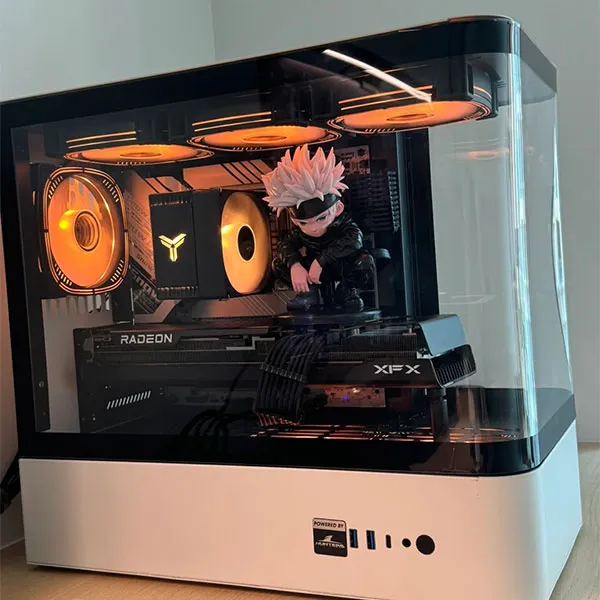
9. Customized Power Solutions for Demanding Gaming Rigs
We offer a wide range of power supply options for gaming PCs, including:
- ATX Power Supplies: The standard form factor for most gaming PCs. Our ATX Power Supply is very popular.
- SFX Power Supplies: Compact PSUs for small form factor gaming PC builds.
- FLEX Power Supplies: Even smaller PSUs for specialized, compact gaming systems. Check out our FLEX Power Supply.
- Custom Power Supplies: We can design and manufacture power supplies to your precise requirements, including high-wattage units for extreme gaming rigs.
Our team will work closely with you to understand your gaming PC’s power needs and recommend the optimal power supply solution, ensuring high performance and reliability.
10. Case Studies: Real-World Examples of PSU Selection for Gaming
Here are some case studies illustrating PSU selection for different gaming PC builds:
- Case Study 1 (Entry-Level Gaming PC): A user building an entry-level gaming PC with a budget graphics card and a mid-range CPU chose a 550W 80 PLUS Bronze PSU. This provided enough power for their current system with some headroom for minor upgrades.
- Case Study 2 (Mid-Range Gaming PC): A gamer building a mid-range system with a more powerful graphics card (e.g., NVIDIA GeForce RTX 3060 or AMD Radeon RX 6700 XT) and a mid-range CPU opted for a 650W 80 PLUS Gold PSU. This provided ample power and efficiency for their gaming needs.
- Case Study 3 (High-End Gaming PC): A user building a high-end gaming rig with a top-of-the-line graphics card (e.g., NVIDIA GeForce RTX 4080 or AMD Radeon RX 7900 XTX) and a high-end CPU selected an 850W or 1000W 80 PLUS Gold or Platinum PSU. This ensured they had plenty of power for their demanding components, even with overclocking.
- Case Study 4 (Large internet cafe): Needed a large number of power supplies, and turned to us for consistent quality and support.
These case studies demonstrate how PSU selection varies depending on the specific components and performance goals of the gaming PC.
Frequently Asked Questions
What happens if my PSU doesn’t have enough wattage for my gaming PC?
Your system may experience instability, random shutdowns, crashes, or it may not even power on at all. Your PC might just shut down.
Can I use a PSU with a higher wattage than my gaming PC needs?
Yes, you can. It won’t damage your components, but it might be less efficient at lower loads than a PSU with a wattage closer to your actual needs.
What’s the difference between modular, semi-modular, and non-modular power supplies?
These terms refer to the PSU’s cabling. Modular power supplies have all detachable cables, semi-modular power supplies have some detachable cables, and non-modular power supplies have all cables permanently attached.
What does the 80 PLUS certification mean?
The 80 PLUS certification indicates a PSU’s power efficiency. A higher rating (e.g., 80 PLUS Gold) means the PSU is more efficient, converting more of the AC power from the wall into usable DC power and wasting less energy as heat.
How do I know which connectors I need for my gaming PC?
Check the specifications of your components (motherboard, CPU, GPU, storage devices, etc.) to determine their power connector requirements.
Which PSU is best for RTX 4070?
A 850W-1200W PSU is usually recommended.
How do I choose a PSU for PC?
Look for a PSU that meets the criteria above.
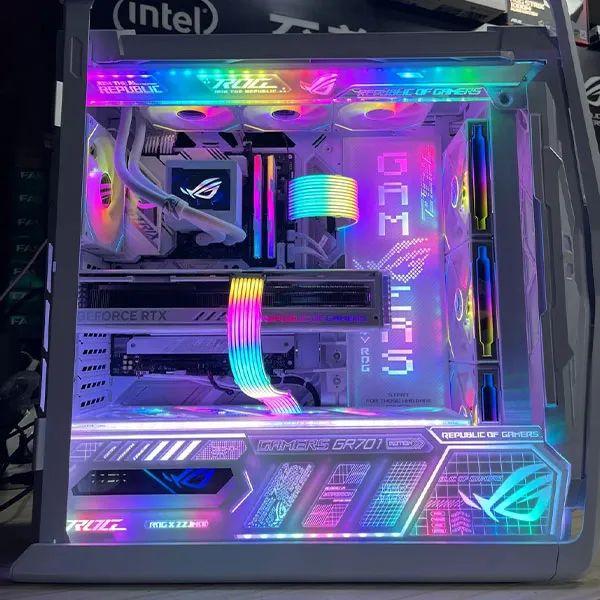
Summary
- Choosing the right power supply (PSU) is crucial for a stable and reliable gaming PC. You need to think about choosing a PSU carefully.
- Calculate your gaming PC’s power requirements by considering all your components and using a power supply calculator.
- Select the correct PSU form factor (ATX, SFX, etc.) for your PC case.
- Pay attention to the 80 PLUS certification for power efficiency. Our 80 plus gold 850w power supply is a great example.
- Choose between modular, semi-modular, and non-modular power supplies based on your cabling preferences. Modular power supplies create clean builds.
- Ensure the PSU has the necessary power connectors for all your gaming PC components.
- Consider future upgrades when selecting your PSU wattage.
- As an OEM power supply manufacturer, we offer customized solutions tailored to your specific gaming PC needs.
- Partnering with us provides access to expertise, quality, cost-effectiveness, and customization options. We can provide the best power options.
- We offer a range of power supplies for gaming PCs, including ATX, SFX, FLEX, and custom designs.
- This guide will help you find the best power supplies.
- This guide will help with choosing the right power supply.
- The power supply is right for you if it meets all of your needs.

